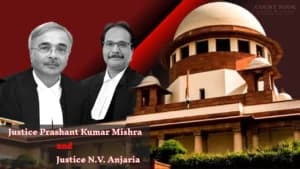The Supreme Court of India recently acquitted Ramu Appa Mahapatar, who was convicted for the murder of his live-in partner. The judgment highlighted the unreliable nature of extrajudicial confessions when not corroborated by solid evidence.
Case Background
Ramu Appa Mahapatar was living with the deceased, Manda, in a live-in relationship. Following a quarrel, it was alleged that Ramu assaulted Manda, leading to her death. He subsequently informed his landlord (PW-1) and the deceased’s relatives about the incident. The prosecution’s case heavily relied on circumstantial evidence, including Ramu’s extrajudicial confession to several witnesses.
Read Also:- Supreme Court Woman Entitled to Maintenance from Second Husband Despite Legally Undissolved First Marriage
The trial court convicted Ramu under Section 302 of the Indian Penal Code (IPC), sentencing him to life imprisonment. The High Court later upheld this conviction. However, upon appeal, the Supreme Court examined the evidence and overturned the verdict, granting Ramu the benefit of the doubt.
Circumstantial Evidence Requires a Strong Chain of Proof
“Circumstances must not only be proved beyond reasonable doubt but must also be closely connected to the principal fact sought to be inferred,”
stated the Court. It reiterated that circumstantial evidence must form a complete and unbroken chain leading solely to the guilt of the accused, leaving no room for any other hypothesis.
Read Also:- Registry Cannot Delete a Case from Cause List Without Court's Order Supreme Court
Weakness of Extrajudicial Confessions Citing earlier judgments, including State of Rajasthan vs. Raja Ram (2003) and Sahadevan vs. State of Tamil Nadu (2012), the Court emphasized that extrajudicial confessions are inherently weak. For such confessions to be admissible, they must be voluntary, truthful, and corroborated by other evidence.
“An extrajudicial confession, if voluntary and made in a fit state of mind, can be relied upon. However, it should inspire confidence and must be corroborated by other prosecution evidence,” the Court noted.
Material Omissions and Contradictions The Court found significant discrepancies in the statements of prosecution witnesses. For instance, PW-3, the deceased’s brother, testified that the accused appeared confused when he confessed. Furthermore, PW-3 and PW-6’s testimonies during the trial varied from their earlier statements to the police under Section 161 of the Code of Criminal Procedure (Cr.P.C.)
“When an omission becomes significant and relevant, it amounts to a contradiction,”
the Court remarked, quoting its earlier decision in Alauddin vs. State of Assam (2024).
No Corroborative Physical Evidence Despite claims that the accused used a grinding stone and stick to assault Manda, there was no recovery of these items with blood stains matching the deceased. Moreover, Ramu’s clothes were neither torn nor blood-stained, further weakening the prosecution’s case.
Unusual Conduct of Witnesses The Court found the conduct of the deceased’s brother (PW-3) peculiar. Despite hearing the accused confess to killing his sister, PW-3 did not react strongly and instead accompanied the accused back to the scene of the crime.
“This behavior is not normal for a brother under such circumstances,” the Court observed.
The Supreme Court concluded that the evidence against the accused lacked credibility and coherence. It noted, “Suspicion, however strong, cannot take the place of hard evidence.” Since the extrajudicial confession was unreliable and there were no corroborating circumstances, the Court ruled it unsafe to sustain the conviction.
Read Also:- TN Govt Moves SC Against Governor Over Pending Bills
Granting the benefit of the doubt to the accused, the Court quashed the convictions by the lower courts and ordered Ramu’s immediate release.
Importance of Credible Evidence: Convictions based on circumstantial evidence must leave no room for doubt.
Scrutiny of Witness Testimonies: Material omissions or contradictions in witness statements can undermine a case.
Limits of Extrajudicial Confession: Such confessions, being a weak form of evidence, require corroboration.
“The proved circumstances must be consistent only with the hypothesis of the guilt of the accused and totally inconsistent with his innocence.”
“Suspicion, however strong, cannot take the place of hard evidence.”















